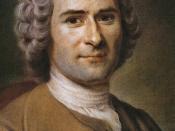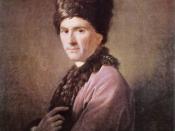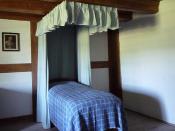Rousseau the Critic
Despite his radical critique of Enlightenment, Jean Jacques Rousseau belongs to it. He remained loyal to the Enlightenment in two important ways, despite this disagreement over certain "fundamental" beliefs. The first was in his commitment to the authority of reason and its ability to help the thinker reach his conclusions independently. He shared the commitment to a program of research that was common to the entire philosophical movement. Second, Rousseau was also looking to help man reach the state of enlightenment: to eradicate prejudice, fanaticism and superstition, those same ends the philosope was moving toward. He may have differed with the philosophes as to what the actual meaning of lumieres was, but he always remained faithful to the ideal of spreading it.
To determine whether something can truly be called immanent critique, one does not take into account how divergent the opinion is. What matters is the method of reaching it, and in the case of Rousseau we can truly say he turned the tools of his enemies against them.
Logical thought experiments, a crucial analytical method of the period, were the basis for the Second Discourse (for as Rousseau mentions himself, there is no natural man around for him to question). His conclusions are based on speculation, but following the accepted principles of reasoning used at the time.
This first open break with enlightenment doctrine elicited disbelief from Rousseau's contemporaries. D'Alembert seemed not to take Rousseau's arguments seriously when he pointed out that involvement in the encyclopédie seemingly undermines his claim. But as it became clear, this was only the beginning of Rousseau's break with the philosophes.
A fundamental disagreement between Rousseau and the rest of the philosophes was their respective views on the development of the arts and sciences. Both Voltaire in his Century of...


